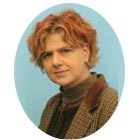Invited Speaker

Dr. Anna Maria Duszewska
ProfessorDivision of Histology and Embryology, Department of Morphological Sciences, Faculty of Veterinary Medicine, Warsaw University of Life Sciences, Warsaw, Poland
Speech Title: Cryopreservation for biodiversity protection of Wisent (Bison bonasus)
Abstract: Cryobiology gives new perspectives in the protection of the Wisent - European bison (Bison bonasus) which is an endangered species. Cryobiology enables the preservation of germplasm, i.e. genetic material in the form of mature and immature oocytes, spermatozoa, embryos, somatic cells, fragments of tissues, organs and blood. We collect sperm from the epididymis of wisent males and then freeze them (sperm bank). We recover ovaries from wisent females, from which we isolate oocytes and ovarian tissue for their cryopreservation (oocyte and somatic cell banks). Some isolated immature oocytes are matured in vitro and then fertilized in vitro with thawed spermatozoa to obtain embryos. The embryos are cultured in vitro to morula and blastocyst stages and then cryopreserved (embryo bank), subsequently thawed embryos are transferred to recipients to obtain offspring. Primary cell lines are derived from tissue fragments, which are frozen (cell bank). Some of these cells are thawed to obtain induced pluripotent stem cells (iPS) from which gametes can potentially be obtained. Financed by the Forests Fund (Poland) - OR.271.3.10.2017.
Biography: I received my Master’s degree in Animal Husbandry (1991) and PhD in Veterinary Medicine (1995) from Warsaw University of Life Sciences. In 1996, I joined the Institute of Genetics and Animal Breeding, Polish Academy of Sciences as an adjunct in the Experimental Embryology Department, where in 2006, I received habilitation. From 2006 to 2008 I worked as an Assistance Professor in that Institute. Since 2009, I have been working as an Associate Professor in the Division of Histology and Embryology, Department of Morphological Sciences, Faculty of Veterinary Medicine, Warsaw University of Life Sciences. I have been engaged in lecturing in Embryology, Histology, Cell biology and Genetics. I have been the supervisor for 8 Masters and 3 PhD students. I have been interested in research including in vitro production of cattle embryos and creation of transgenic cattle. Currently, I focus on the study of the influence of elevated temperature on the oviduct and early cattle embryo development in the aspect of maternal-embryo interaction. However mainly I have been engaged in in vitro production of bison bonasus (wisent) embryos, which is a threatened species. In 2017, I created the first wisent embryos in the world (Reproduction in Domestic Animals 2018). I have completed Polish and international projects (NCS, COST). I have published my research in, amongst others, PLOS One, Journal of Physiology and Pharmacology, Theriogenology, Reproduction in Domestic Animals, Reproduction Fertility and Development. I am an expert for the Federation of Veterinarians of Europe (FVE) and National Program FORESIGHT 2020. I am a member of the Epiconcept Action FA1201 (COST), Polish Society of Reproductive Biology and others.